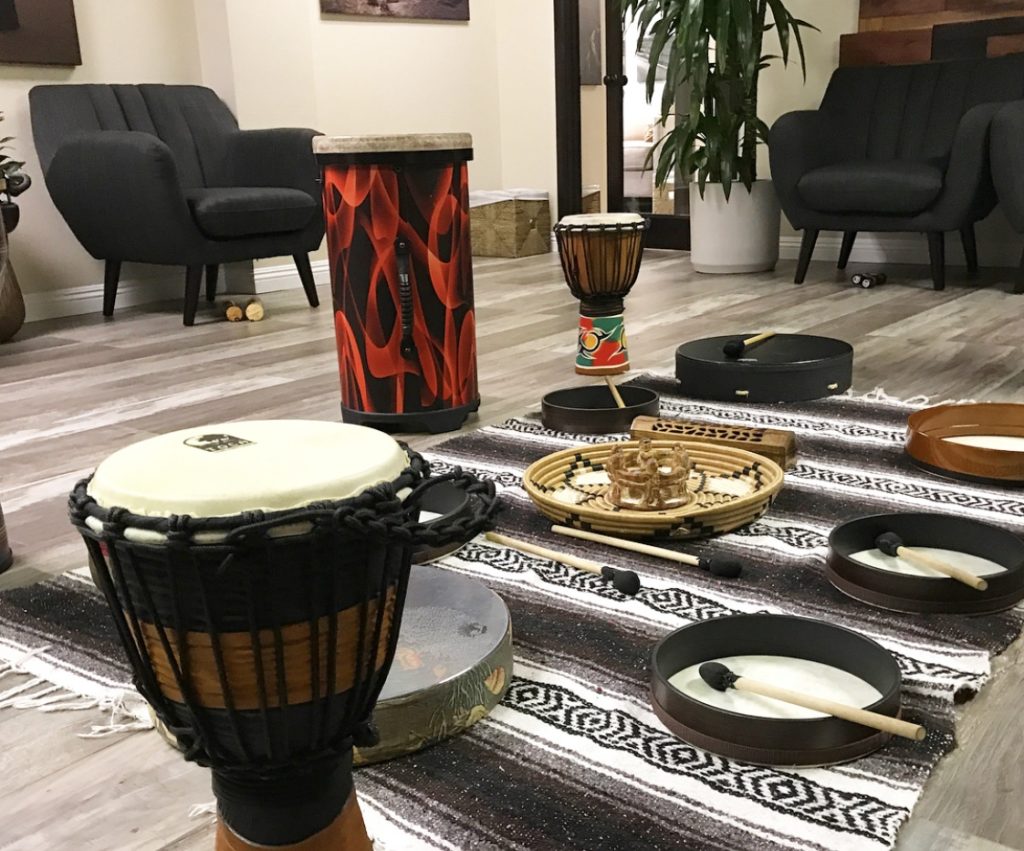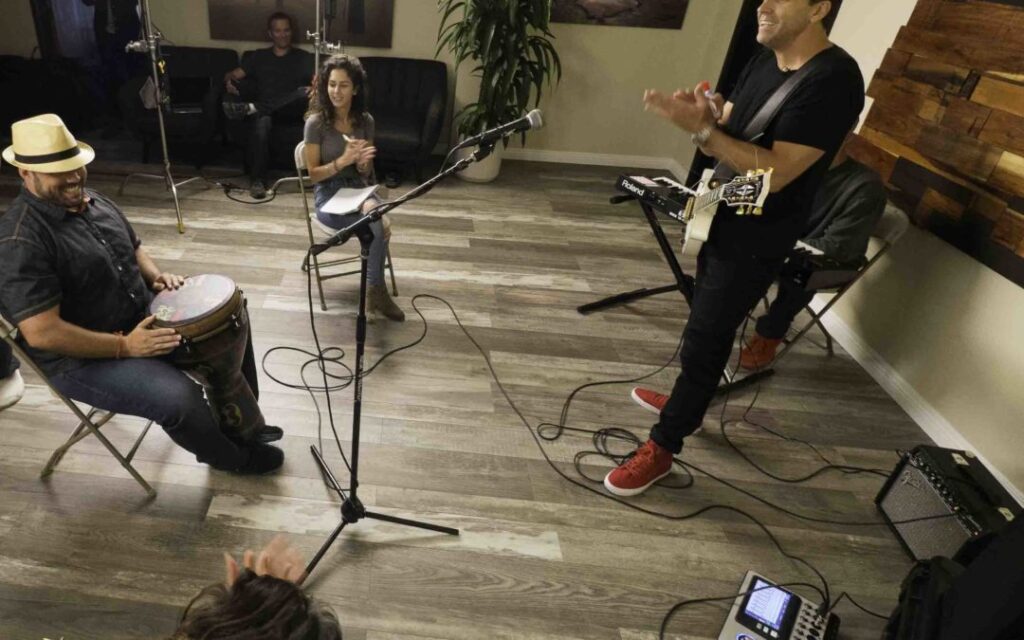The idea of music as a healing force is not new. The ancient Greeks put Apollo, one of their gods, in charge of both music and healing, suggesting that there has long been an understood connection between the two. There are many theories as to why music therapy works. Some studies support the idea that music helps the brain make new connections between nerve cells, and helps organize the firing of nerve cells in the part of the brain responsible for higher functions. Others look at the rhythms of music and feel that we respond to rhythmic repetition, much like our heart, breathing, and brain waves.

What can music therapy do?
The healing power of music is well-documented. It has been proven to reduce anxiety and depression, and also to lessen the symptoms of Parkinson’s disease, Alzheimer’s, autism, schizophrenia, and many other psychological disorders.
Additionally, music therapy has been found to improve motor function, communication skills, emotional stability, and the ability to focus. It is considered to be an evidence-based therapeutic approach to mental health treatment, and there are plenty of mainstream studies to back it up.
For example, according to the American Psychological Institute, music therapy should not be thought of as an “alternative therapy” due to the weight of clinical studies that can back the results. These studies prove that music therapy can help patients in the areas of physical health, emotional health, mental health, and also in a social manner.
How music therapy is applied
Depending on the diagnosis and the approach decided on by your therapist, music therapy might involve singing along to music or simply meditating and relaxing as you listen. Various exercises or movements might be performed with music as the catalyst, supporting outcomes that range from improving self-image to improving memory and physical coordination.
At Roots, music therapy not just something we offer, it is woven into the fiber of our program, with several groups a week tapping into the power of music and healing. David Hickman, a UCLA-trained Music Medicine Facilitator, provides a Drumming for Healing group, in which clients are able to use Native American and African drumming rhythms to communicate internal feelings, and support for the peer group. This extremely powerful group has become one of the cornerstones of our program.
Rock to Recovery, founded by veteran guitarist, Wes Geer, employs song writing, and performing and recording as a “band”, to focus on creating a sense of belonging and increasing self-esteem. “…It was when I was in treatment that I realized how much music could help [me] get through those tough emotions that run so rampant, especially in the early days. Being totally sober and dealing with the bottom I had hit, strumming the guitar was the only thing that would bring me peace,” says Geer. The group of professional musicians, who are also in recovery, brings fun into treatment and recovery by offering a natural escape from the fear-based mind.
Music therapy for pain
Music therapy has also proven helpful in managing pain. In one study, cancer patients were split into two groups; one group received talk therapy while the other received music therapy. In the talk therapy group, there was no noticeable reduction in pain, while the music therapy group showed a “statistically significant reduction” in pain scores.
The findings supported the theory that music therapy is a safe and nonpharmacological alternative to pain reduction, even in cases of severe and chronic pain.
Music therapy for depression and anxiety
According to the American Music Therapy Association, music therapy can help patients with a wide range of psychosocial needs. In cases where patients are resistant to other treatments, it has enabled them to develop relationships, communicate emotions, and express ideas that they may not be able to address with words alone.
The stimulation that music provides tends to provoke responses that stem from familiarity, comfort, and feelings of security associated with the music itself.

Drum circle set up for the Drumming for Healing group with David Hickman.
Other mental health outcomes that have been observed through music therapy include:
- Improved personal relationships
- Decrease in anxiety/phobias
- Improved self-esteem
- Increase in verbalization
- Better motivation
- Safe emotional release
- Reduction in muscle tension
In conclusion, music therapy can be highly beneficial in addressing a range of disorders. It is a safe and evidence-based practice that is effective when integrated into a multidisciplinary approach and supporting other modes of healing therapy like yoga, nutrition, and art therapy.
If you would like to learn more about whether music therapy might be right for you, reach out today to get started. Visit Roots Through Recovery at 3939 Atlantic Ave, Suite 102 Long Beach, CA 90807 or call (866) 766-8776 for immediate assistance.



